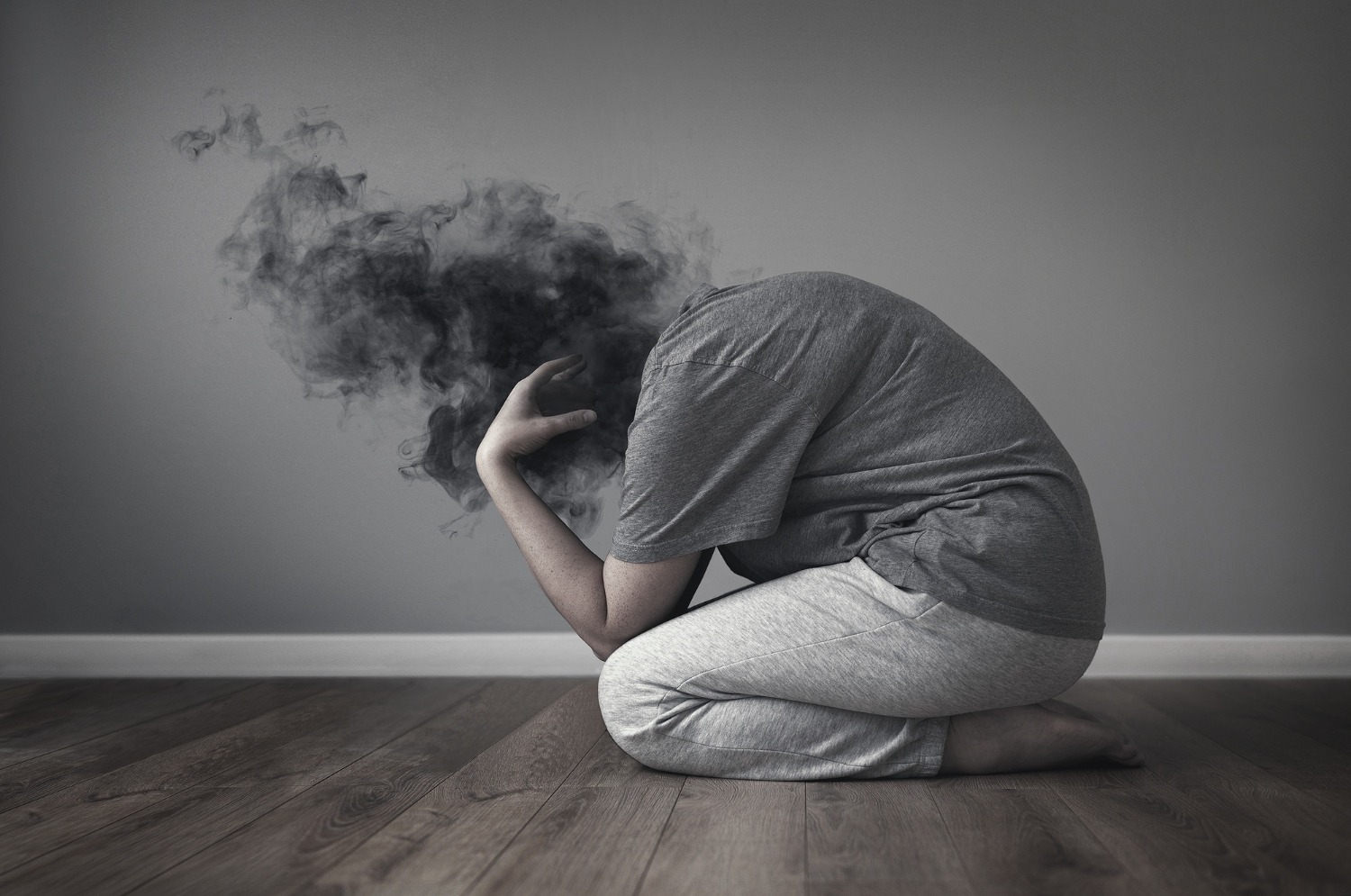Depression and Substance Use Disorder
Depression is a mood disorder that commonly co-occurs with substance use disorder. There is often a vicious cycle in depressive disorders and substance abuse disorders in which they intensify the effects of each other. Depression can increase the risk of suicidal thoughts and suicidal ideation. Comprehensive treatment that addresses both conditions is the best way to address and manage both disorders.

- Depression is a mood disorder characterized by persistent sadness or loss of interest, often influenced by serotonin activity levels in the central nervous system.
- Various types of depressive disorders exist, such as major depressive disorder and premenstrual dysphoric disorder, and they can be exacerbated by substance abuse, especially alcoholism.
- To be diagnosed with depression, one must meet specific criteria from the DSM-5, including symptoms like inconsistent sleep, loss of interest, and thoughts of suicide.
- Depression and substance abuse frequently co-occur, creating a cycle where each disorder intensifies the other, necessitating holistic treatment for both conditions.
What is Depression?
Depression is a mood disorder that causes a persistent feeling of sadness or loss of interest.[1]
When you’re depressed, life doesn’t have the same zing, energy, and hope you usually enjoy. Depression is influenced by a disturbance in serotonin activity levels in your central nervous system.[2] Serotonin is responsible for feelings of happiness and well-being.
Sadness is a defining characteristic of most depressive cases, but you might also feel empty or irritable. Unfortunately, due to societal stigma, up to 60% of people who suffer from depression do not seek treatment.[3] Depression can also increase your risk for suicidal thoughts and ideations.
Some different kinds of depressive disorders include:[4]
- Disruptive mood dysregulation disorder (children/adolescent irritability)
- Major depressive disorder (Severe depression)
- Persistent depressive disorder (Moderate depression)
- Premenstrual dysphoric disorder (Severe mood swings during a woman’s cycle)
- Depressive disorder due to another medical condition
Many sufferers attempt to blunt the experience of depression with substance abuse. Alcoholism is often a co-occurring disorder and can exacerbate the negative feelings that lead to depression in the first place.
Common Symptoms of Depression
To be clinically diagnosed as “depressed,” an official diagnosis must be made according to the criteria included in the Diagnostic and Statistical Manual of Mental Disorders, 5th edition (DSM-5).[5] At least 5 out of 9 criteria must be present daily (“depressed mood” or “interest/pleasure reduction” is mandatory) for two consecutive weeks[6]:
- Inconsistent sleep
- Loss of interest or pleasure in formerly satisfying activities
- Non-specific worthiness or guilt
- Tiredness
- Lack of focus
- Dietary disruptions
- Changes in the way you talk, walk or move
- Thoughts of suicide
- Persistent negative mood
Depression Statistics
In the United States, over 15 million physician office visits were conducted in 2019 in which various depressive disorders were the primary diagnosis.[7] In all physician visits, 11% of them listed depression on the medical record.[8] Out of the 1 billion total physician visits in 2019, approximately 110 million of them reported the presence of depression.
Females are 1.5 to 3x times more likely than males to experience depression beginning in adolescence.[9] In the United States, depression accounts for nearly 40,000 cases of suicide every year.[10]
For comparison, in 2021, all opioid-related deaths accounted for about 80,000 deaths. That means there are half (50%) as many deaths attributed to depression as there are deaths attributed to the entirety of opioids.[11]
Depression and Substance Abuse
Depression and substance abuse often co-occur. Depression symptoms can lead to substance abuse and vice versa. The experience of depression can lead sufferers to self-medicate with substances like alcohol or other drugs.
Depression and drug addiction can create a vicious cycle. Oftentimes alcohol is abused by depressive disorder sufferers due to its central nervous system (CNS) depressant effects. Unfortunately, the euphoria from drinking is a fleeting sensation.
Despite the initial dopamine surge you get from drinking, your body will still feel the lack of serotonin needed to stay happy. The best way to address depression is with holistic, medical, and mental health treatment that addresses both substance or alcohol use and depressive disorders.
One helpful treatment for co-occurring disorders like depression and substance abuse is Dual Diagnosis treatment. A dual-diagnosis treatment program identifies each disorder and then applies unique interventions.
Co-occurring disorders tend to intensify the effects of the other, leading to a vicious cycle that is hard to escape. Programs will address each disorder as a separate diagnosis that needs its own individualized treatment plan.
Common dual-diagnosis therapies for depression and substance use disorder may include:
- Experiential Therapy
- Acceptance and Commitment Therapy (ACT)
- Cognitive Behavioral Therapy (CBT)
- Eye Movement Desensitization and Reprocessing (EMDR)
- Family Therapy
- Psychoeducation
Also, levels of care in which treatment for co-occurring substance use disorder and depression occurs may include:
- Medical Detox
- Partial Hospitalization Programs
- Intensive Outpatient Programs
- Outpatient Programs
- Aftercare
Cost of Treatment for Depression and SUD
The cost of treatment for depression and substance abuse can depend on several factors. Your needs, history, and desired lifestyle during treatment greatly affect the cost.
The higher the level of care you need, the longer your treatment may be and the more it will cost. The length of stay, intensity of care, and different kinds of therapies chosen will all play a part in determining the cost.
Our Mental Health facility in Tennessee provides depression treatment in Nashville.
Insurance may cover some or all of your treatment. For a customized cost evaluation, call now.
Frequently Asked Questions about Depression
[1][2][3][4][5][9][10] Depression – statpearls – NCBI bookshelf. (n.d.). https://www.ncbi.nlm.nih.gov/books/NBK430847/
[6] U.S. Department of Health and Human Services. (n.d.). Depression. National Institute of Mental Health. https://www.nimh.nih.gov/health/topics/depression
[7][8] Centers for Disease Control and Prevention. (2023, May 17). FastStats – depression. Centers for Disease Control and Prevention. https://www.cdc.gov/nchs/fastats/depression.htm
[11] National Institute on Drug Abuse. (2023, June 30). Drug Overdose Death Rates | National Institute on Drug Abuse (NIDA). https://nida.nih.gov/research-topics/trends-statistics/overdose-death-rates